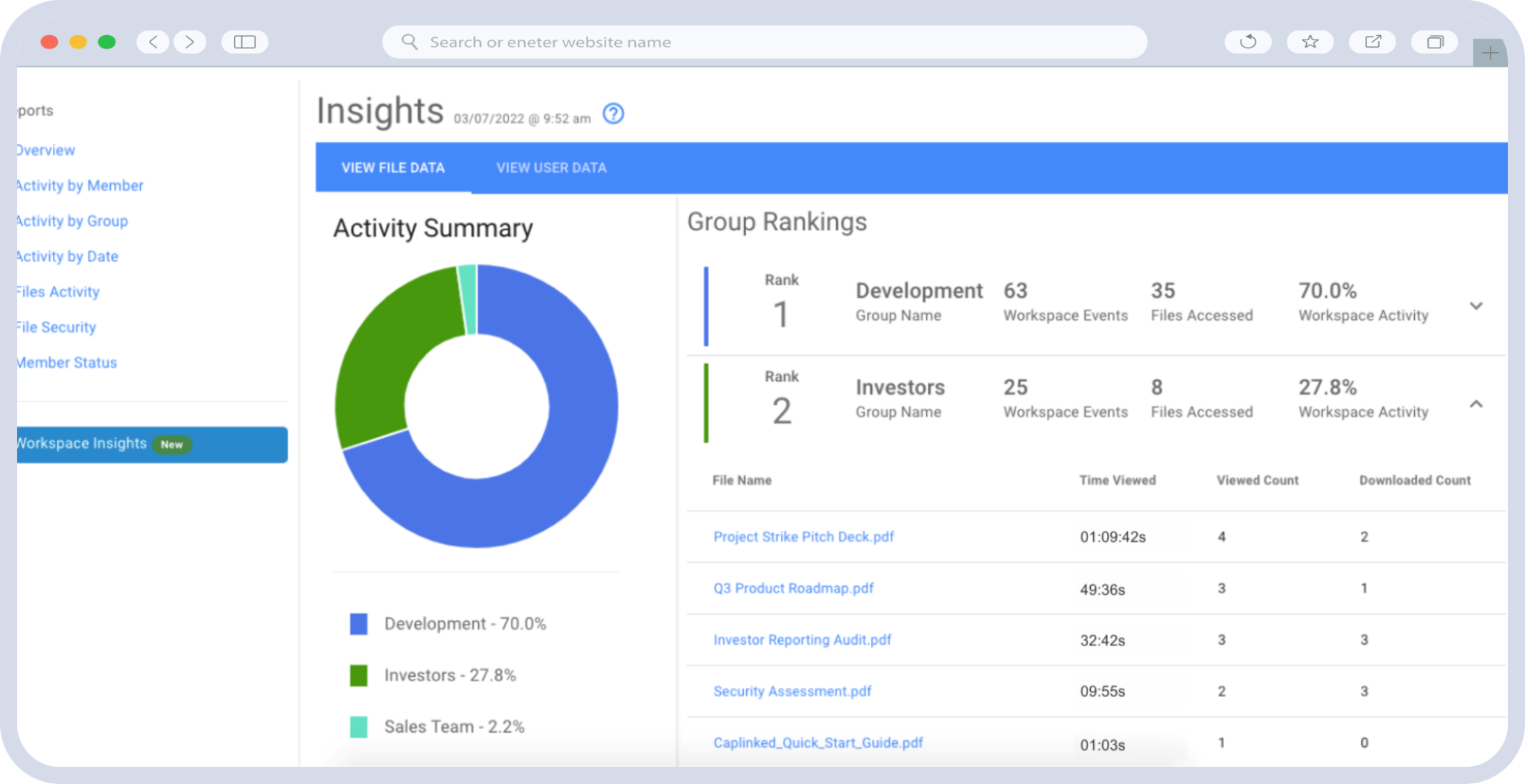According to PWC, deal volume is down 9% in the first half of 2025, but intriguingly, deal value is up a staggering 15%! When hundreds of millions of dollars are on the line, every detail matters. One overlooked security gap in a virtual data room can put an entire deal at risk. That’s why enterprise-grade file permissions aren’t just a “nice to have” feature; they’re mission-critical.
The right permission framework ensures that only the right eyes see the right information, at the right time. In mergers, acquisitions, capital raises, and joint ventures, this kind of precision is the backbone of trust and compliance.
Let’s break down how robust permissioning protects high-value transactions and why your choice of platform determines whether your deal moves forward smoothly or stalls under regulatory and reputational pressure.
Table of Contents
ToggleWhy File Permissions Matter in Enterprise Transactions
At their core, file permissions dictate who can view, download, edit, or share a document. In everyday business operations, this might seem straightforward. However, in enterprise transactions, where hundreds of stakeholders may require varying levels of access, the stakes skyrocket.
A well-structured permission system can:
- Prevent leaks of confidential data to competitors or unauthorized parties.
- Provide regulators with clear, auditable access logs.
- Enable efficient collaboration without sacrificing control.
- Build confidence among buyers, sellers, investors, and advisors that information is handled responsibly.
Without these safeguards, even a single mishandled document could trigger compliance violations, lawsuits, or the collapse of negotiations.
Common Permissioning Pitfalls That Put Deals at Risk
Even sophisticated teams sometimes underestimate the complexities of access control. Here are a few of the most common pitfalls:
- Over-permissioning: Granting broad access “just to speed things up” can expose sensitive documents unnecessarily.
- Under-permissioning: Restricting too tightly creates friction and slows deal velocity, frustrating serious bidders.
- Static permissions: Deals evolve rapidly; failing to adjust access as parties enter or exit can lead to security blind spots.
- Lack of transparency: Without clear audit trails, it’s nearly impossible to prove compliance after the fact.
These pitfalls highlight why manual approaches, or relying on generic cloud storage tools, don’t cut it for multi-million-dollar transactions. Enterprise-level VDR solutions allow unparalleled levels of control, plus 24-hour personalized concierge support.
The Role of Granular File Permissions
The solution lies in granular file permissions, which allow for fine-tuning access on a document-by-document, folder-by-folder, and even user-by-user basis.
This gives administrators the control to:
- Define exactly who can view a file and under what conditions.
- Enable or disable downloads, printing, or screenshots.
- Limit access by role, team, geography, or project stage.
- Instantly revoke access when circumstances change.
Granularity allows for agility. As due diligence progresses, you can progressively open up access without ever losing oversight.
Compliance and Auditability: Permissions as Proof
In today’s regulatory environment, it’s not enough to say you safeguarded information. You need to prove it. File permissions create a clear, verifiable record of who accessed what, when, and from where.
This auditability is invaluable in industries subject to heavy oversight, such as:
- Banking and finance, where regulators may review data handling in M&A or capital raises.
- Life sciences and biotech, where intellectual property and trial results must be tightly controlled.
- Energy and infrastructure, where cross-border deals attract intense government scrutiny.
With full audit trails built into your virtual data room, you can demonstrate compliance without scrambling to catch up after the fact.
Balancing Security and Deal Velocity
Some platforms treat permissions as a binary. They’re either locked down or wide open. That approach slows deals to a crawl or leaves them vulnerable. The right system balances both.
Enterprise-grade permissioning should allow:
- Rapid onboarding of new bidders without weeks of configuration.
- Dynamic updates as parties move from initial review to advanced diligence.
- Secure collaboration across internal and external teams, including advisors.
This balance allows you to accelerate negotiations while maintaining control firmly in your hands.
Why Your Choice of Platform Matters
Not all virtual data rooms (VDRs) handle permissions equally. Generic file-sharing platforms may offer basic sharing links, but they lack the rigor needed for enterprise transactions.
A purpose-built VDR like CapLinked is designed with high-stakes deals in mind. With advanced file permissions, CapLinked enables administrators to control every layer of access, from individual document rights to role-based groups, while maintaining detailed logs for compliance.
Features like dynamic watermarking and DRM (Digital Rights Management) further extend protection beyond the data room itself.
The difference isn’t theoretical. For Fortune 1000 companies, private equity firms, and investment banks, it can mean the difference between a smooth close and a deal derailed by a security incident.
Best Practices for Implementing File Permissions
If you’re managing a high-value transaction, here are some practical steps to strengthen your permissioning strategy:
- Start with least privilege: Grant minimum necessary access and expand as needed.
- Use role-based groups: Assign permissions by function (legal, finance, advisors) to streamline administration.
- Regularly review and adjust: Permissions should evolve as the deal moves forward.
- Leverage audit logs: Monitor access patterns for unusual activity.
- Integrate with DRM tools: Extend control over files even if they leave the VDR.
These practices help create a resilient framework that adapts to changing deal dynamics without compromising security.
The Strategic Advantage of Strong Permissioning
In high-value transactions, permissioning serves as both a strategic advantage and a technical safeguard. When parties know that sensitive data is protected and access is well-controlled, it builds confidence. That confidence, in turn, keeps momentum high and negotiations focused.
Conversely, if buyers or investors encounter sloppy access controls, it raises red flags. They may question not only your security practices but also your overall readiness to close.
When Control Is Non-Negotiable
Multi-million-dollar deals demand airtight security without slowing the pace of execution. With enterprise-grade file permissions, you safeguard sensitive data, comply with regulatory demands, and maintain the confidence of every party at the table.
CapLinked’s VDR platform is built with this reality in mind—equipping deal teams with the tools to manage access seamlessly and prove compliance at every step.
Ready to see how CapLinked can give you total control over your data room? Schedule a demo today.




